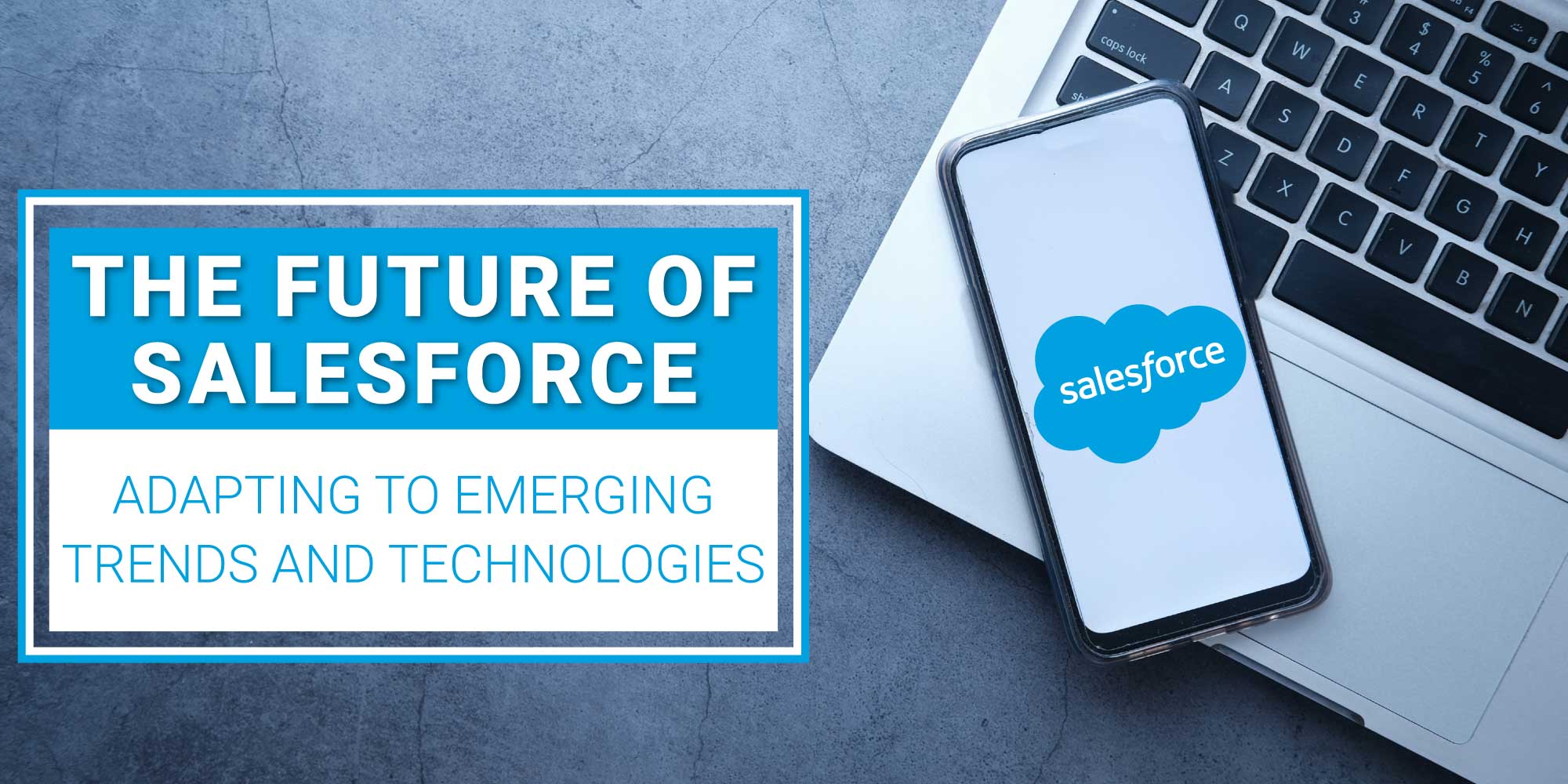The future of Salesforce has emerged as a dominant force in the dynamic world of Customer Relationship Management (CRM).
It has revolutionized the way businesses engage with customers, enhancing relationships, streamlining sales processes, and optimizing operations with its powerful suite of tools.
However, Salesforce’s future is not static; it continually evolves to meet the ever-changing needs of organizations and customers in our rapidly advancing technological landscape.
In this article, we will explore how the evolving technological landscape is shaping the future of Salesforce, focusing on key trends and emerging technologies.
Artificial Intelligence and Machine Learning
Artificial Intelligence (AI) and Machine Learning (ML) are set to play a pivotal role in the future of Salesforce, ushering in innovation and transformation across various business domains.
At the forefront of this AI revolution is Salesforce’s AI platform, Einstein, which continually evolves to deliver more intelligent automation and insights.
The Evolution of Einstein AI
Einstein AI empowers Salesforce with intelligence and automation, enabling companies to make data-driven decisions and provide highly personalized customer experiences.
With each technological advancement, Einstein’s capabilities grow, enabling make increasingly sophisticated and precise forecasts and recommendations.
AI-Powered Features
- Predictive Lead Scoring: Einstein’s predictive lead scoring enables sales teams to focus their efforts on the most promising leads, boosting productivity and closing rates by analyzing historical data and consumer behavior.
- Automated Data Analysis: Einstein simplifies data analysis, providing crucial insights with minimal manual effort, and enabling more intelligent decision-making by uncovering hidden patterns, trends, and opportunities within vast datasets.
- Personalized Customer Experiences: AI-enabled insights enable Salesforce to offer highly personalized customer experiences by analyzing customer preferences and behaviour, enhancing customer satisfaction and loyalty.
Enhancing Customer Service, Sales, and Marketing
AI will significantly enhance Salesforce’s capabilities in sales, marketing, and customer service. AI-powered chatbots and virtual assistants will offer immediate, personalized support, increasing the efficiency of customer care.
Marketers will leverage AI to enhance customer journeys, target messaging effectively, and optimize campaigns. Additionally, AI-driven sales forecasting, dynamic pricing, and more effective sales tactics will benefit sales personnel.
Internet of Things (IoT) Integration
The integration of Internet of Things (IoT) technologies within the Salesforce ecosystem has the potential to revolutionize how companies operate and engage with their customers.
IoT enables businesses to gather and analyze real-time data from connected devices, machines, and sensors, which Salesforce can leverage to optimize processes and enhance customer experiences.
IoT Data Collection and Analysis
IoT devices continuously collect data from various sources, including wearable technology, equipment, products, and more.
Advanced analytics tools analyze this data once it is integrated into Salesforce, providing valuable insights into customer behavior, product usage trends, and performance metrics.
Process Improvement and Enhanced Customer Experiences
Businesses can streamline operations by enabling predictive maintenance, monitoring supply chain efficiency, and automating inventory management using IoT data integrated with Salesforce.
Predictive maintenance alerts, for instance, can proactively prevent equipment issues, reducing downtime and increasing overall productivity.
Real-World Applications
- Healthcare: Salesforce’s IoT integration enables remote patient monitoring and personalized treatment regimens based on real-time health data.
- Logistics and Transportation: IoT devices in trucks and cargo containers offer real-time tracking, route optimization, and inventory control.
- Smart Cities: IoT sensors collect city data for improved resource allocation and urban planning within Salesforce.
- Agriculture: IoT devices monitor crop health and soil conditions, helping farmers use resources efficiently and increase crop yields.
- Energy Management: Salesforce’s IoT integration facilitates energy use monitoring, identifying opportunities for businesses to reduce energy costs.
Enhanced Data Analytics and Business Intelligence
In today’s data-driven environment, data analytics plays a crucial role in decision-making. Salesforce’s emphasis on data analytics is expected to transform reporting, providing users with more insightful data.
Salesforce’s Focus on Data Analytics
Salesforce continually enhances its analytics capabilities, offering increasingly sophisticated reporting features and cutting-edge visualization tools to provide users with a deeper understanding of their data.
Integration of Advanced Analytics Tools
Businesses can analyze large datasets and identify significant patterns and trends by integrating advanced analytics tools like Einstein Analytics and Tableau with Salesforce.
These technologies enable real-time insights, predictive analysis, and superior results.
Augmented Reality and Virtual Reality
Augmented Reality (AR) and Virtual Reality (VR) have the potential to revolutionize customer experiences within the Salesforce ecosystem.
They are transforming training, customer support, and sales demonstrations by providing immersive and engaging experiences. Customers are more likely to make confident purchases when they can see products with vivid realism.
Additionally, remote assistance using AR and VR accelerates problem-solving, while immersive training environments enhance skill acquisition.
Applications in the Real World
Businesses and customers benefit from increased engagement, informed decision-making, and cost savings through virtual demos and remote assistance.
Real-world applications of AR and VR in retail, real estate, and healthcare demonstrate their transformative impact on the future of Salesforce, paving the way for enhanced customer experiences and business success.
Conclusion
The future of Salesforce is shaped by emerging trends and technologies that promise to transform how businesses operate and interact with their customers.
Salesforce’s adaptability and commitment to innovation enable it to continually evolve, from harnessing the power of Artificial Intelligence and Machine Learning to delivering immersive experiences through Augmented Reality and Virtual Reality.
As technology advances, the possibilities within Salesforce are limitless. Embracing innovation and remaining adaptable are essential for businesses to stay at the forefront of the ever-changing technology landscape, fulfilling their objectives, and remaining competitive in the fast-paced world of Salesforce.
Stay tuned for the exciting developments that lie ahead in the future of Salesforce with CloudQ.




